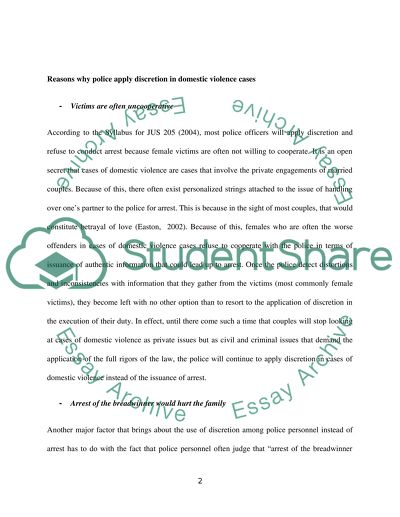Cite this document
(“Discuss the Pros the Cons of Police Discretion in Domestic Violence Essay”, n.d.)
Retrieved de https://studentshare.org/law/1457178-research-paper-law-enforcement
Retrieved de https://studentshare.org/law/1457178-research-paper-law-enforcement
(Discuss the Pros the Cons of Police Discretion in Domestic Violence Essay)
https://studentshare.org/law/1457178-research-paper-law-enforcement.
https://studentshare.org/law/1457178-research-paper-law-enforcement.
“Discuss the Pros the Cons of Police Discretion in Domestic Violence Essay”, n.d. https://studentshare.org/law/1457178-research-paper-law-enforcement.


